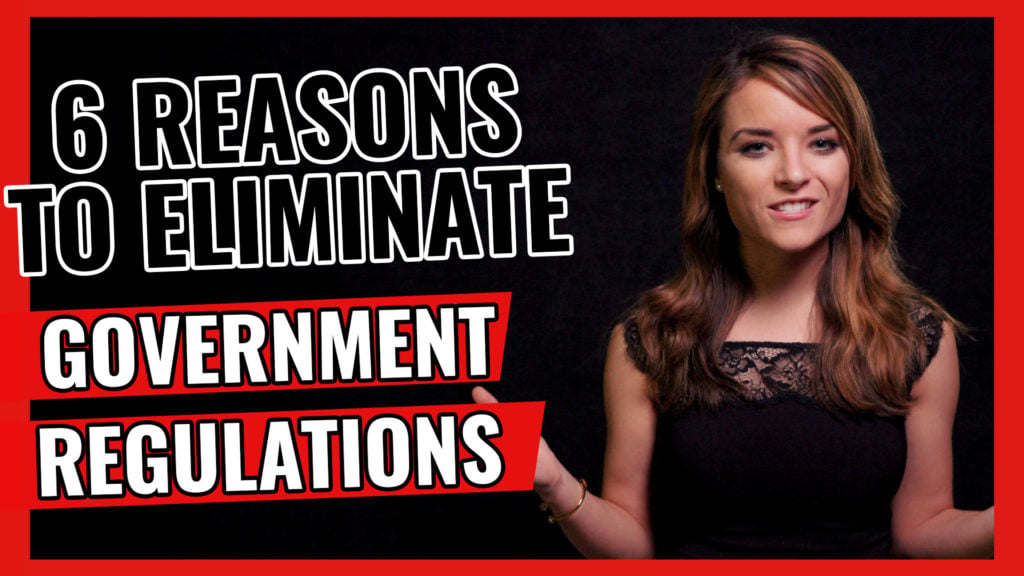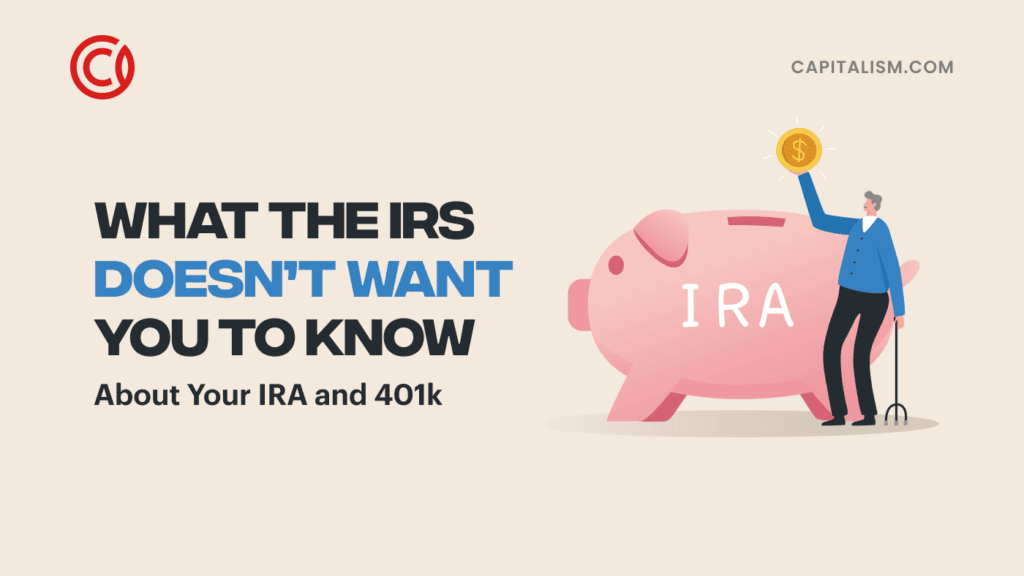Government regulation is excessive, and often such regulations do more harm than good.
Hey guys, Kristin Tate here with Capitalism.com to share with you six arguments against government regulation.
A significant issue from this past election and elections before it has been deregulation. Some believe that our economy needs excessive, bureaucratic red tape, while others believe it to hold back the free market.
Capitalism.com contributor and economics professor Tom Lehman explained why government regulation hurts business using six different arguments. Let’s go through each of them.
#1 - Government regulations are a hidden tax on the market.
Product manufacturing regulations. Environmental and land-use regulations. Labor market regulations. Health care mandates. Financing and banking regulations.
These and more hurt business. Businesses not only have to navigate the muddy waters of often complex rules, they also have to pay for it. Regulatory compliance costs aren’t the only hidden tax - many such regulations have fees associated with annual filings and forms.
Taxes - hidden or not - drive a wedge between supply and demand, according to Lehman.
#2 - Government regulations dull competitive market forces by erecting barriers and forcing marginal firms out of the market.
Industries affected by government regulation often end up with monopolies or quasi-monopolies, discouraging entry into the market and restraining competition. How can consumers get the quality they want, the quality that disruptive startups often bring to the market, if constraints on the market keep them out of the industry?
#3 - Government regulations are a form of special interest protection and rent-seeking by the business community.
Not all businesses hate government regulation. Some are in favor of protectionism to avoid having to compete with disruptive startups to be more efficient. Some examples of this include product safety regulations, pricing disclosure regulations, and occupational licensing laws.
#4 - Government regulations are redundant, since the free market is self-regulating.
Ever heard of Adam Smith? He helped us understand the self-regulating competitive marketplace or what’s known as the invisible hand. Within the framework of the rule of law and property rights, a free market without government regulation actually works.
"Products that fail market test are routinely weeded out," Lehman says, "with the assets of the failed firm peacefully transferred into the waiting arms of competitive investors and entrepreneurs who have better ideas about their employment."
#5 - Government regulations threaten the rule of law and violate property rights, often subverting market forces to the arbitrary whims of bureaucratic decision makers
When government regulations are turned to bureaucracies to be implemented and enforced, the details of the regulations are hammered out. The latitude and discretion of these can often distort the marketplace in that products and services end up being tailored to political interests rather than the consuming public.
#6 - Government regulations are rarely subject to thorough cost-benefit analysis.
With government regulation, thorough cost-benefit analysis is rare. Instead of the burden of proof falling on those propose new regulations, often it falls on opponents and critics to build a case against them. That gives bureaucrats a free pass to propose new regulations, opening the doors to further special interest demand for more regulation.
Thanks for watching! If you liked this video, please share it! And don’t forget to follow our Facebook page and subscribe to our YouTube channel. See you next time!
MORE FROM KRISTIN TATE ON CAPITALISM.COM
• How Capitalism Is Solving Dating Problems
• Is Government Regulation of Butter for Safety or to Destroy Competition?
• How Government Wastes Your Tax Dollars Trying to Collect Student Loan Debt











